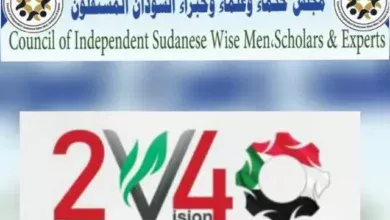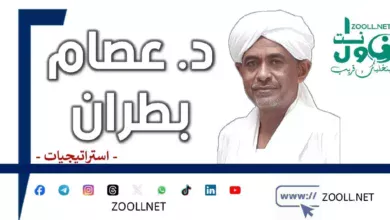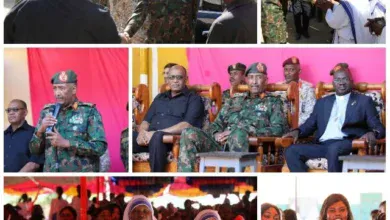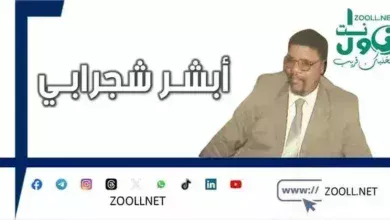Governor of the Bank of Sudan… The battle for economic dignity ✍️ Muhammad Othman Al-Radi

I had the honor of meeting the Governor of the Bank of Sudan, Mr. Bora Al-Siddiq, and his new deputy, Muhammad Othman, in a library in the administrative capital of Port Sudan. For almost 4 hours, we did not go out. all distracted without discussing it, especially the banking issue.
For the sake of truth and history, the governor's personality is characterized by several features, the most prominent of which is his detailed knowledge of the details of the currency (Hafiz Lohu completely), in addition to the strength of endurance to face economic shocks and his insightful forward-looking vision of the future of the economy in the current circumstances.
From the beginning of my conversation with him, he promised me that I would take ownership of the abstract facts, without complacency, and that I would identify the gaps and how to remedy them.
Holding a high-ranking management position, such as that of the governor of the Bank of Sudan, in the current circumstances is like a risk and a risk, and it is in no way less important than a guerrilla who ties an explosive belt around his chest in the name of martyrdom, in order to protect his country and sacrifice his soul for the dignity of his people and the elevation of his status.
It is extremely important to take responsibility for leading the battle for economic dignity, because war has many faces, different forms and different roles. There are those who carry weapons on the battlefield, and there are those who fight with words, and there are those who fight to leave behind a healthy invader, and they are all mujahideen and fighters, even if their means differ.
What caught my attention and what I concluded from the governor's words: I felt the seriousness of the economic battle, and the only thing that caught my attention and follow-up was the military operational situation on the battlefield.
Suddenly, a question came to my mind during the meeting, and I immediately threw the ball into the governor's court and asked him my direct question: Where are the salaries of the regular forces, the army, the police and the general intelligence paid? I could only answer with my usual frankness. The Bank of Sudan pays their salaries to the factory department in full and on time.
From what I know and everyone knows, the provision of salaries is not the responsibility of the Bank of Sudan. It is one of the core competencies of the Federal Ministry of Finance, headed by its Minister, Gabriel Ibrahim.
Unfortunately, there is no clear economic vision of how to manage the war in all its aspects. The proof of this is that everyone works alone and with their own efforts, and state institutions have become isolated islands, and there is no joint coordination and coordination. Everyone works as they please.
The country is living in a state of war and the Council of Ministers meets in times that can be counted on the fingers of one hand. Normally, it turns into a permanent operational room that follows and monitors events in order to intervene if necessary. time.
The experience of the war proved to us that no brotherly or friendly country honestly supported us in our economic war. We expected that dollar deposits would reach us and fill the coffers of the Bank of Sudan, and we were keen to take pictures with them. the governor of the Bank of Sudan and behind the coffers full of foreign currency, but unfortunately all this did not happen, so the governor returned zero. The hands come from those countries that are neither brothers nor friends, and they are not sad to do so. leave us alone to fight the battle.
We have with us a high-level delegation from the Central Bank of Russia, which is holding consultations and discussions with the Governor of the Bank of Sudan and his assistant. We hope that this visit will be fruitful and its results will be reflected in the current situation. sol.
The strategic product portfolio responsible for providing food, flour, medicines and petroleum products at a cost of one billion dollars, I repeat, has not contributed by itself to stabilizing the exchange rate, and all parties concerned must unite to achieve this goal.
The Bank of Sudan does not have the stick of Moses to solve all economic problems on its own, but rather operates according to an integrated economic system, and each has a specific and known cycle.
The Federal Ministry of Finance must think outside the box and strive to create new revenue alternatives and move away as much as possible from easy and affordable solutions. One example is its reliance on the Bank of Sudan to borrow from the banking system. the deficit, and there is a risk of disastrous consequences by resorting to the system of borrowing from the banking system and what economists guess in the short and long term.
One of the positive points in favor of the Sudanese banking system is that it is still strong and fully performing its job, despite the problems it has been exposed to since the beginning of the war, which in itself is a great victory.





